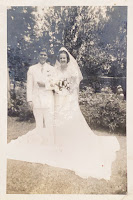 |
| Saint Charles Avenue Streetcar |
Lady tells me, "Supposed to be like Saturday. Supposed to be like Saturday. Tulane and Claiborne flooded, Lord, Oh Lord. I'm surprised right here ain't flooded."
It ain't nothing but "a hair flip" thang, I tell her, flipping my hair in dramatic fashion. Mother nature's a bitch, but you just swat your hair *me imitating Chris Crocker * like that. That's what you do. Sure do.
The streetcar starts up again. I'm relieved I won't be late for work. We're finishing up some miscellaneous myths. Perhaps we'll do flood myths; sounds a propo.




